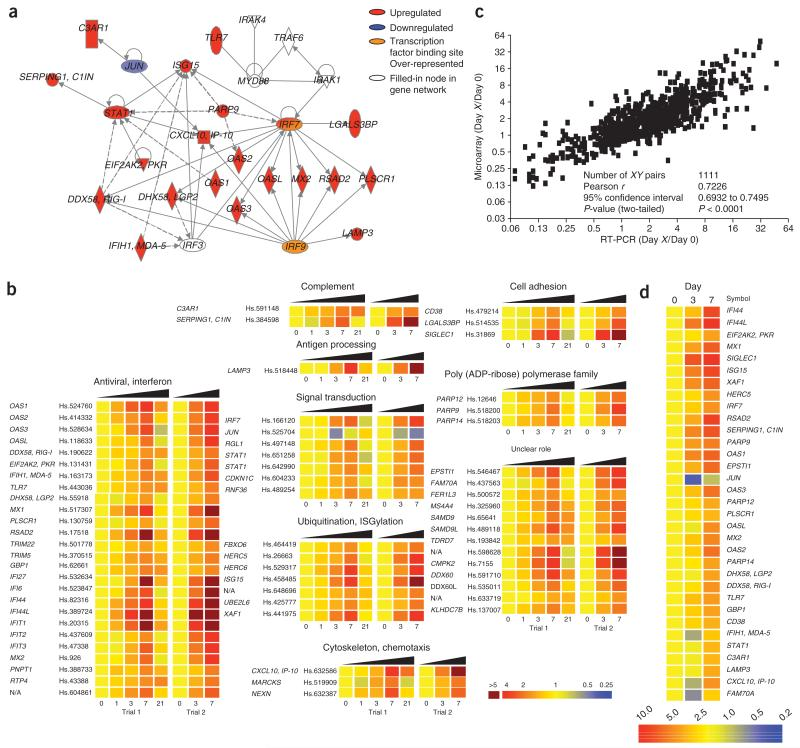Systems biology approach predicts immunogenicity of the yellow fever vaccine in humans.
A major challenge in vaccinology is to prospectively determine vaccine efficacy. Here we have used a systems biology approach to identify early gene 'signatures' that predicted immune responses in humans vaccinated with yellow fever vaccine YF-17D. Vaccination induced genes that regulate virus innate sensing and type I interferon production. Computational analyses identified a gene signature, including complement protein C1qB and eukaryotic translation initiation factor 2 alpha kinase 4-an orchestrator of the integrated stress response-that correlated with and predicted YF-17D CD8(+) T cell responses with up to 90% accuracy in an independent, blinded trial. A distinct signature, including B cell growth factor TNFRS17, predicted the neutralizing antibody response with up to 100% accuracy. These data highlight the utility of systems biology approaches in predicting vaccine efficacy.
Authors
Troy D Querec; Rama S Akondy; Eva K Lee; Weiping Cao; Helder I Nakaya; Dirk Teuwen; Ali Pirani; Kim Gernert; Jiusheng Deng; Bruz Marzolf; Kathleen Kennedy; Haiyan Wu; Soumaya Bennouna; Herold Oluoch; Joseph Miller; Ricardo Z Vencio; Mark Mulligan; Alan Aderem; Rafi Ahmed; Bali Pulendran
External link
Publication Year
Publication Journal
Associeted Project
Systems Vaccinology
Lista de serviços
-
Is the gut microbiome key to modulating vaccine efficacy?Is the gut microbiome key to modulating vaccine efficacy?
-
Toxicogenomic and bioinformatics platforms to identify key molecular mechanisms of a curcumin-analogue DM-1 toxicity in melanoma cells.Toxicogenomic and bioinformatics platforms to identify key molecular mechanisms of a curcumin-analogue DM-1 toxicity in melanoma cells.

